Ships. Solar panels. Senegal.
Some words for your next game of Scattegories, as well as a glimpse of some of the most recent campaign developments.
Scroll on to learn about the ways that Greenpeace and its partners have been working to effect change in the past few weeks!
CAMPAIGN UPDATES
Greenpeace Activists Occupy Shell Platform
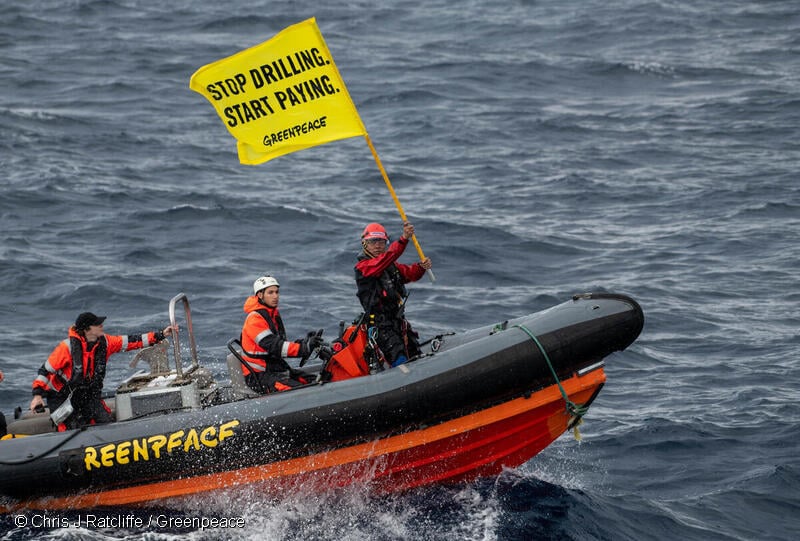
On January 31, Greenpeace activists from Argentina, Türkiye, the US, and the UK boarded a vessel contracted by Shell in the Atlantic Ocean.
The protestors left Greenpeace’s Arctic Sunrise aboard three boats and used ropes to climb onto the deck of the White Marlin. There, they occupied the ship’s cargo—a Shell oil and gas platform. This equipment is intended to enable Shell to unlock eight new wells in the Penguins North Sea oil and gas field.
Shell attempted to shut down the peaceful protest by securing an injunction on Friday, February 3, threatening protestors with fines and up to two years in prison. Greenpeace International was able to sustain the occupation for thirteen days, however, sending more climbers on boats unaffected by the court orders. The activists disembarked at a Norwegian port on Monday, February 13, without any police arrests.
The protestors carried a message for the oil company: “Stop Drilling. Start Paying.” Because big polluters like Shell should take responsibility for their role in the climate crisis, and pay to help countries recover from extreme weather caused by climate change.
It’s time to #MakePollutersPay.
Cayar Campaign Breakthrough
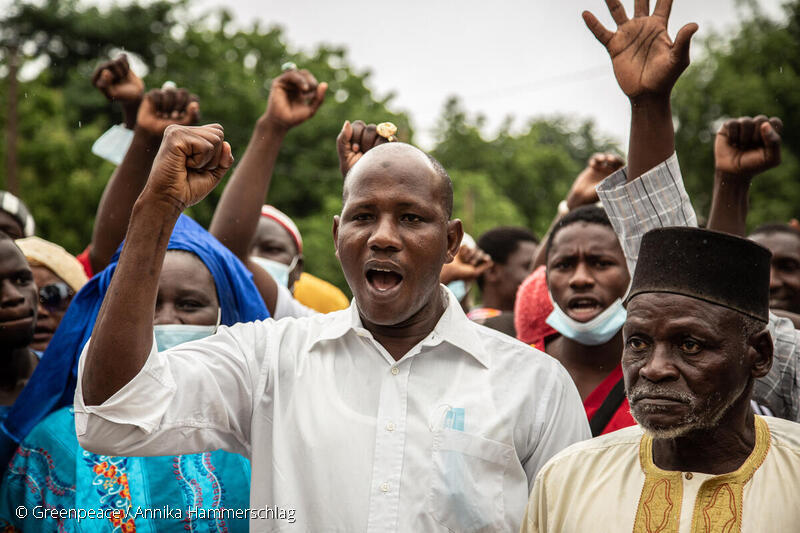
In September 2022, grassroots campaigners in Senegal took legal action against a fishmeal factory, calling for an injunction to suspend the factory’s activities. The Taxawu Cayar Collective argued that the Barna Sénégal fishmeal factory had been polluting the environment, jeopardizing people’s health, livelihoods, and food security.
The Collective had previously provided video documentation that showed a factory truck illegally dumping liquid waste into Lake Mbawane. An independent analysis confirmed illegal levels of chromium and selenium in the lake, and the same toxic metals were found in Cayar’s tap water.
Now, in a major campaign breakthrough, the municipality of Cayar has banned the discharge of wastewater into the local lake and its surroundings. The decision reinforces what community members have been arguing all along, and the Collective has announced that it will build on this decision and launch a new phase in its legal challenge to further protect the community’s rights.
Stay tuned for more updates!
Green Reconstruction of Hospital in Ukraine
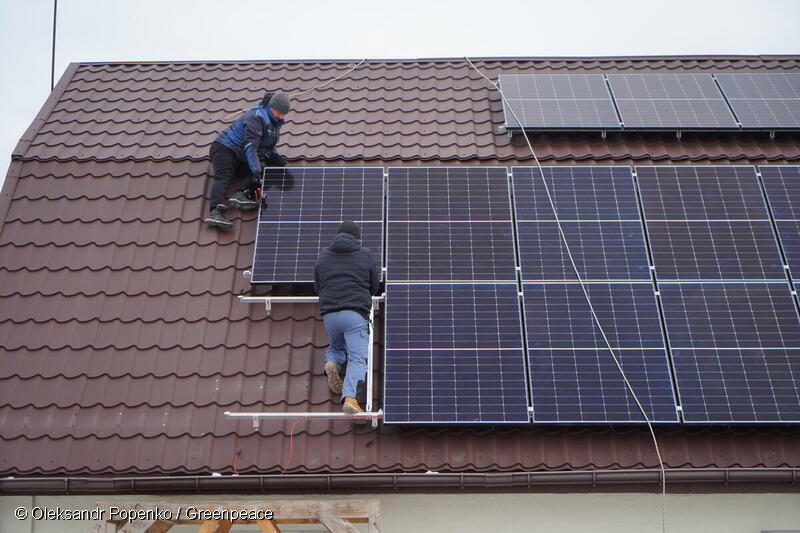
During the first few months of the war in Ukraine, the village of Horenka came under attack. At the local hospital, the heating system was damaged by a Russian shell and needed to be reconstructed and operational by winter.
Greenpeace Central and Eastern Europe (CEE), along with Ukrainian NGOs like Ecoaction and Ecoclub Rivne, started a green reconstruction of the hospital, installing a heat pump and a solar plant. And on February 2, 2023, the hospital opened, with its new heating system in place.
The project is part of Greenpeace CEE’s “City Partnership for Green Reconstruction in Ukraine,” which aims to connect European municipalities with local communities in Ukraine that already have green reconstruction plans. This hospital, as the pilot project, highlights how using energy-efficient and renewable technologies can help build the resilience of communities in times of crisis.
Ummah for Earth
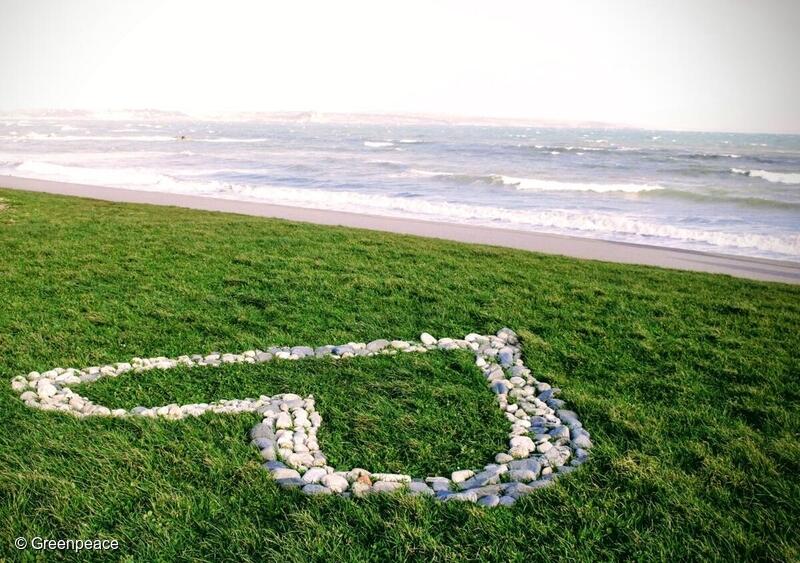
Ummah for Earth is an alliance-led initiative to empower and engage with Muslim diaspora communities on climate justice. As part of this alliance, Greenpeace Canada has partnered with EnviroMuslims to support the community group’s important work.
Created at the end of 2019, EnviroMuslims aims to engage with, educate, and empower Canadian Muslims to embed environmental sustainability in their everyday lives—where they live, work, play, or pray. For example, the organization has helped mosques across Canada implement sustainable and climate-friendly practices. The ongoing success of this program led to the creation of the EnviroMuslims Bootcamp, an action-oriented series of sessions dedicated to learning, networking, and providing support to Canadian Muslim organizations who are working to embed a culture of environmental sustainability in their programming.
Interested in learning more? Want to participate?
HOT OFF THE PRESS
SO SUE ME
The conduct of Canada’s Big Banks repeatedly contradicts their climate commitments. In doing so, Greenpeace Canada finds that Canadian banks are putting themselves at risk of legal action.
The new report, So Sue Me, spotlights the discrepancy between the climate pledges and policies of two major Canadian banks—RBC and Scotiabank—over the past six years as a symptom of a broader trend in the financial sector. Stakeholders are using legal action to hold banks accountable around the world—and Canadian banks may encounter the same repercussions as they continue lauding their climate goals while financing the fossil fuel industry.
FOOD INJUSTICE: 2020-2022
Greenpeace has just released a new report on food injustice.
Greenpeace International commissioned research to analyze 20 agribusiness corporations across the globe—the largest in grain, fertilizer, meat, and dairy sectors. The report delivers a broad picture of how the corporations use their power to deliver outrageous profits to their shareholders while millions starve. Crises like the COVID-19 pandemic and the war in Ukraine have deepened existing inequities, showing an urgent need to transform the global food system.
Greenpeace is committed to campaigning for a food system that prioritizes justice and food sovereignty for all, rather than the enrichment of a few powerful corporations.
SUPPORTER SPOTLIGHT
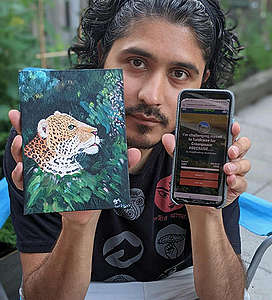
Meet Snigdhodeep Mukherjee, a talented artist who decided to raise money to protect what he loves by doing what he loves. Every day for a month, Snigdhodeep sketched an endangered species from the Amazon. From monkeys to macaws, his sketches helped raise awareness about the threats to the rainforest and, at the same time, raise funds to protect it.
With this fundraiser, Snigdhodeep raised $632 for Greenpeace!
Thank you so much, Snigdhodeep!
Do you like to paint? Maybe you like to sing, dance, or know a good card trick! When you do what you love, you can get everyone involved. Check out the #Because fundraising page to find some tools and information.
PICTURE OF THE MONTH
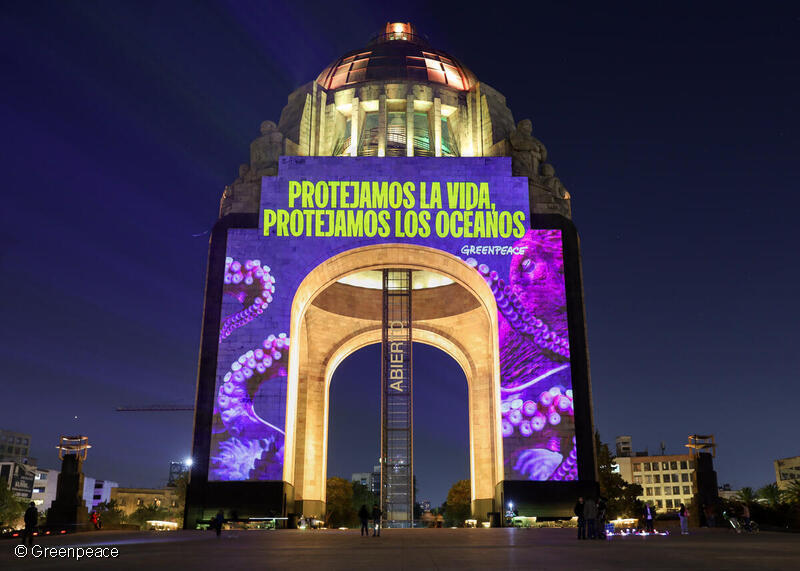
Black History Month
February was Black History Month. As an organization, we interpret this theme as a call to honour and celebrate Black history, present, and futures on this planet. In that spirit, check out some of the content we published throughout February:

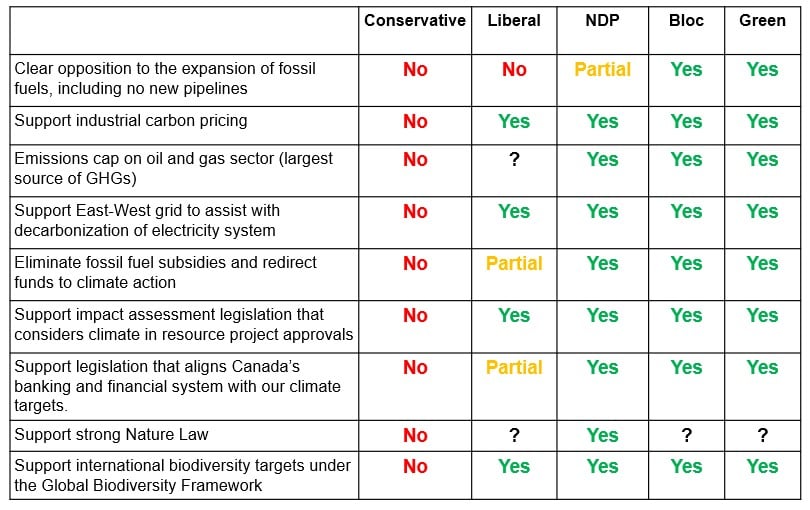
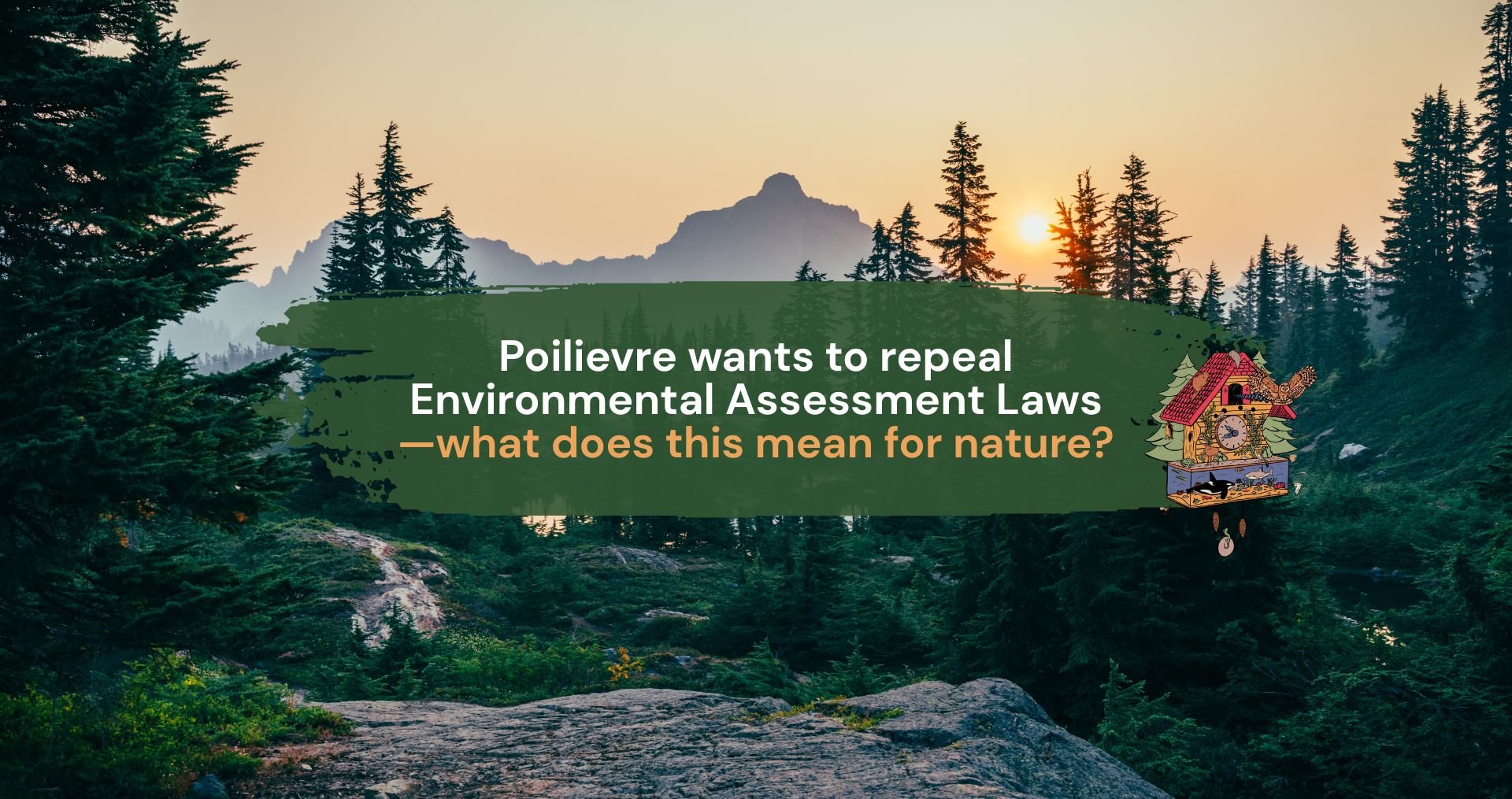
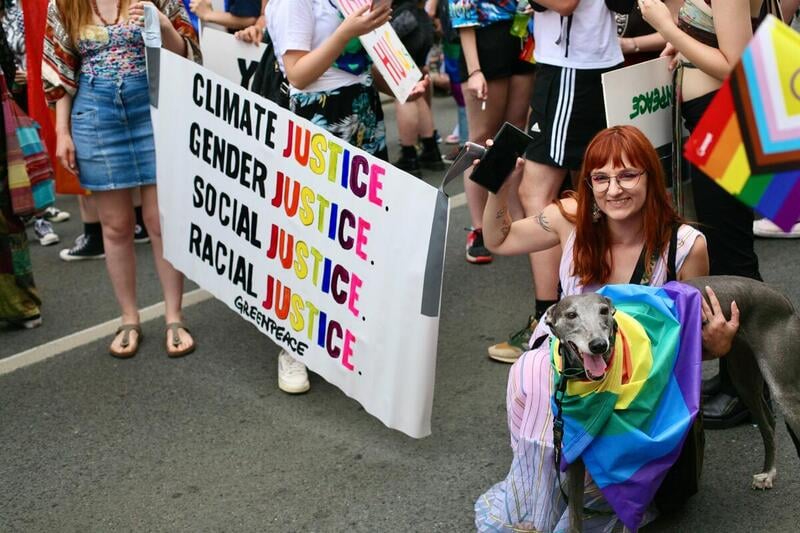
Discussion
I am so grateful for the work that Greenpeace is doing. As I am not well off I feel bad about not helping financially but now I am encouraged by your story about the artist making money to donate from selling paintings. What a brilliant idea. I am also very frustrated by rbc and the other corporations investing in fossil fuels. Those who have bank accounts are certainly not profiting from those investments or from the higher lending rates. Again, thankyou for everything. I am too old to be much help but you give me hope for my grandchildren's future.
Save Canada's horses. No other animal across Canada is treated so horrifically as our horses. 17. Shot in Kamloops BC. In an disheartening act.